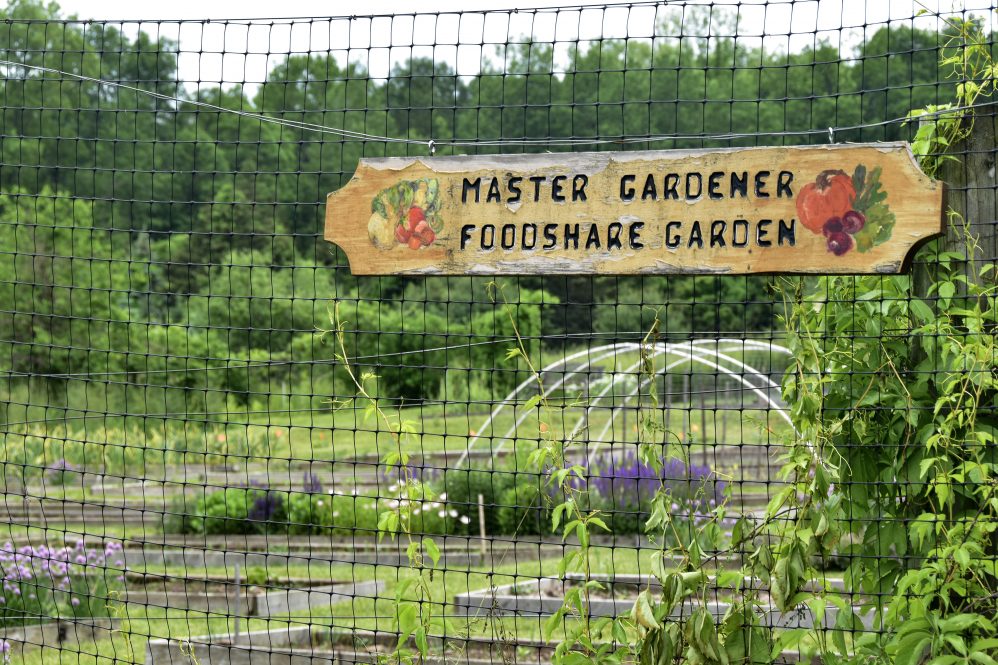Even in the age of technology, gardening is still a beloved pastime for many. The gardening renaissance inspired by the pandemic has caused an increase in those looking to work on their green thumb, but many fledgling gardeners need training and skills to succeed in their new hobby. This is where UConn Extension’s Master Gardener program comes in.
While many programs struggled to switch to an online model in the early days of the pandemic, the UConn Extension Master Gardeners were ready and continued offering instruction, thanks to forward-thinking transformations the team started in 2017.
The Master Gardener program wasn’t always in this position. It’s offered nationally through the Cooperative Extension System, and Connecticut’s first classes were held in 1978. Participants receive horticultural training and a certification through a process that includes a community outreach component. The program begins each year with the 16-week classroom portion where interns, the term used for students, meet weekly for a full-day of learning. After exams, they volunteer in the nine statewide Master Gardener locations, one at each Extension Center and the Bartlett Arboretum in Stamford. They provide community members with horticultural-related information under the direction of Extension’s local Master Gardener coordinators.
Program graduates remain active by completing annual volunteer hours and attending Garden Master classes. These volunteers help mentor new students and lead signature projects throughout the state. On-demand resources on the program website also help those interested to fill knowledge gaps.
Comfortably making the pivot to online options
“We have more online offerings and will continue to since they’ve been so well-received by the public,” says Sarah Bailey, the state program coordinator. “Digital experiences are the norm now and people want options for learning remotely because it’s something we’ve become accustomed to during the pandemic.”
Bailey assumed the role of state program coordinator, in addition to her role as Hartford County Master Gardener coordinator, in the fall of 2016. She wanted to make the program more accessible, since the eight-hour weekday class mostly attracted retirees. Jean Madden-Hennessey was hired as an educational technology specialist and the Tolland County Master Gardener coordinator in 2017 to help move the program into a hybrid online model. The team spent one year preparing and transitioning to the online model before the launch of the hybrid course in January 2018.
By the time the pandemic began, Extension’s Master Gardener program was comfortable online. While Master Gardener programs in other states had a break in classes during the pandemic, UConn Extension’s program pivoted and continued offering life transformative education.
That demand for virtual learning opportunities has remained strong as COVID-19 restrictions dwindled. Half of the applications for the 2022 program class selected the online option. While the Master Gardener program won’t eliminate in-person programs, the online option will always be offered in some format. The Garden Master classes, one-time offerings on specialized topics, clearly indicate the preference for online options.
“People prefer online for some classes, and it broadens who you can reach,” Madden-Hennessey adds. “Gardening is a hobby for many and interns and volunteers like being able to sit and learn while being comfortable at home.”
Meeting a hunger for knowledge with growing options
The gardening renaissance prompted new course offerings as well. An online Fundamentals of Home Gardening series was added, providing individuals with an a la carte gardening education experience. Modules in the series include core fundamentals, environmental factors, ornamental plants, and growing your own foods.
“A big area where we’re seeing this transformation is in how our consumer public is reaching us and getting information,” Bailey says. “We are reaching them and making sure they get the information they need at libraries and farmers’ markets, and we did that before the pandemic. It’s also online access, with Facebook Live and WebEx events. We want them to reach us virtually and then have a conversation about their garden questions. We want people to know that the Master Gardener program is here and accessible.”
Extension’s Master Gardener program continues evolving and serving a broader audience.
“Master Gardener interns and volunteers have a personal connection to their communities,” says Bailey. “They’re enthusiastic members and fans of their programs, where they have a sense of community, and become ambassadors for UConn through their work.”
Participants in UConn Extension’s Master Gardener program spent the equivalent of 5,027 days learning with the coordinators, instructors, and program volunteers in 2021. That was 120,640 hours total of class time spent in plant pathology, diagnostics, ornamental plants, soil health, and entomology, among other topics. There was a total of 1,508 non-traditional students statewide. Learning spaces included physical classrooms, laboratories, garden spaces, and online.
The Master Gardener program is part of UConn Extension in the College of Agriculture, Health and Natural Resources. Applications are due October 14, 2022, for the full program. Learn more about upcoming courses.
Follow UConn CAHNR on social media



